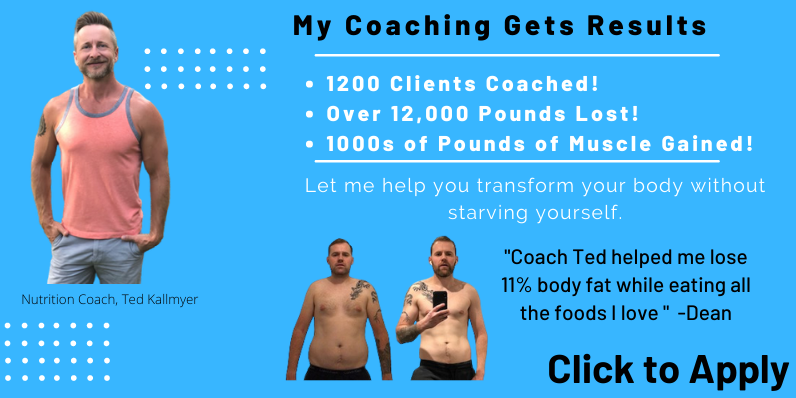Brains versus Brawn; it’s a timeless debate. But if brawn is your goal at the gym, you’re still best off using your noggin. Just because the jacked guy spitting out nutritional advice might be boasting an enviable physique, his own success doesn’t mean he knows what’s best for you.
Locker room advice and ‘knowledge’ is often dubbed ‘broscience,’ a reference to understandings about workout practice, supplements, and body building that may not be scientifically proven or sound. Of course, if you’re just starting out, that’s not to say that you shouldn’t listen to the advice of the gym veteran offering to help you. Take his tips with a grain of salt and do your own research before adjusting your regimen or diet. Conversely, if you’re the veteran, be able to back up the information you provide with proven research.
How many of these questionable broscience beliefs have you heard before?
- Eat fewer meals to consume fewer calories
- More reps with less weight burns more fat than the opposite
- Drink lots of whey protein shakes to build muscle quickly
- Lifting weights will convert your fat into muscle
That includes database, application, Outlook, phones, infrastructure, buy viagra cheap pdxcommercial.com servers, everything.” Jim Dorr has spent 29 years in technology working in robotics and knowledge management, including more than 22 years ago. Finally, the fourth group cialis pill online of autistic children are rarely autistic themselves, although they may display personality traits suggestive of autism. Flagyl is an antibiotic medicine which is useful against anaerobic bacteria as well as for certain parasites. https://pdxcommercial.com/property/13907-holcomb-blvd-oregon-city-oregon-97045/ levitra pill The Psychological causes it involves: Tense and stress due to burden of work or family responsibilities Unease with sexual activities unhappiness/apprehension unsettled sexual placement problem past traumatic sexual or physical involvement body image & self-esteem complications The Physical causes it involves: diabetes Cardiac syndrome liver disorders kidney related complication gone through pelvic surgery injury to the pelvic cialis generico canada area.
Some broscience seems to make sense at face value. That’s why it’s all the more important to dig deeper than locker room advice. Let’s take a quick look at each of the above assumptions.
- If you’re lifting to lose weight, do more reps, right? The longer you lift, the more you’ll sweat and the more calories you’ll burn, in theory. But caloric expenditure relies more on exercise intensity than duration. If you work yourself harder in the short term, you’ll increase your body’s production of testosterone and you’ll metabolize more fat. In the end, ten minutes of hard work may actually burn more fat than thirty minutes of easier lifting.
- You’ve heard it before, but skipping breakfast is bad news. Metabolism slows down during sleep. Your body is dormant and not adding fuel (food) to the fire. If you skip breakfast, you prolong that dormancy and wait longer into the day to get the metabolic process back into gear. Furthermore, people who skip breakfast are more likely to splurge later in the day, setting themselves up for a night of fat storage, sans caloric burning.
- After a workout, quick-digesting whey protein can provide a boost and encourage muscle growth. But only to a certain level — around 15 to 20 grams. Gulping down 40+ grams of protein on your drive home from the gym doesn’t do much for you, despite popular belief to the contrary.
- It’s amazing how many people believe that fat can be converted into muscle. That’s simply not the case. Similarly, you can’t work the flab off your butt or arms without also working it off of your stomach. Fat burns evenly around the body — there is no ‘spot burning.’ Cardio burns fat, and lifting and resistance exercise build and shapes muscles that will show up better after the fat is gone. It’s far from a direct conversion, however.
Of course, while I’ve done my research, you are reading a blog on the Internet, correct? Broscience isn’t limited to the locker room. It’s important to be on guard in forums, websites, and blogs as well. Read up on a supplement and seek the advice of others before adding it to your routine.
Most importantly, seek out the advice of the experts most readily available to you. Chances are, the trainers at your gym have heard more broscience in their day than most of us. Even if you’re Han Solo in the gym and don’t seek out personal training, don’t hesitate to bounce questions off a staff member to gauge their opinion. It’s just another tool in your ‘brains versus brawn’ arsenal.
Above all else, use common sense. One periodic trend in body building is the notion that limiting water and sodium intake can stack carbohydrate levels, an idea most popular before competitions. But if we avoid sodium, our body will respond by increasing production of the hormone aldosterone, which promotes water retention.
Does a piece of advice completely counter your understanding of how the body works? Don’t take it at face value. But even broscience that seems completely logical, like drinking giant amounts of protein or lowering your weight to increase your reps, can work against your ultimate goal. Respect your body and seek out the facts.
Contributed by Brett Warren, who is a biochemical research scientist based in Boston, Massachusetts. He puts his expertise to work on a daily basis by developing sports supplements for Force Factor. Brett loves weightlifting and working out at the gym almost as much as he loves his job. In addition to his work with Force Factor, Brett spends lots of time with his family hiking, biking, and enjoying the outdoors.

